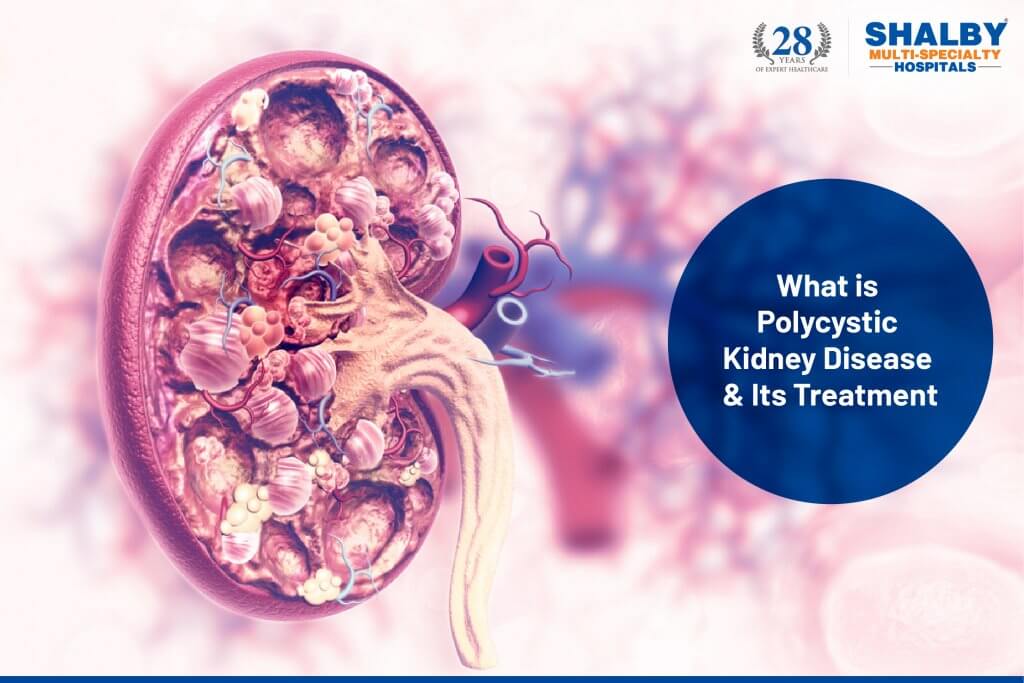
Polycystic kidney disease (PKD) is a hereditary condition. This suggests that it is the outcome of a genetic issue. Cysts form in the kidneys as a result of PKD. These cysts cause the kidneys to grow far bigger than they should and eventually damage the renal tissue. Cysts are noncancerous spherical sacs filled with fluid. The cysts vary in size and may develop to be very enormous. Having a significant number of cysts or a big number of little cysts may be detrimental to your kidneys. This illness needs utmost precision to be treated. There are many hospitals that treat PKD but you need to find the best kidney hospital in India for the best treatment.
Following are the symptoms of Polycystic Kidney Disease:
There are mainly two kinds of Polycystic Kidney Disease. These are as follows:
This is the most common kind of Polycystic Kidney Disease. This kind is observed in around 9 out of every 10 PKD patients. Furthermore, it is the most common inherited renal illness. Cysts in the kidneys occur as a result of ADPKD alone. Symptoms of the condition may not appear until a person is between the ages of 30 and 50. This variety was formerly known as adult polycystic kidney disease, however, it may also affect young children.
For the illness to be passed on to the children, only one parent must be infected. If one parent has ADPKD, each kid has a 50% risk of developing it.
Symptoms of Autosomal Dominant Polycystic Kidney Disease are:
This kind of PKD is less prevalent than Autosomal Dominant PKD. The signs and symptoms usually arise soon after delivery. Symptoms may not occur until later in childhood or adolescence in other cases. The phrase “autosomal recessive” alludes to the fact that for a child to have this disease, both parents must have the gene mutation and pass it on to the child. The child will not develop the disorder if just one parent carries the faulty gene, although he or she may carry the gene mutation. The child is a “carrier” of the disease, and the gene mutation may be handed on to future generations. When both parents have the ARPKD gene, their kid has a one in four (25%) chance of inheriting the disorder.
Symptoms of Autosomal Recessive PKD are:
However, even if there is not much one can do to prevent a disease that occurs from a genetic mutation and is inherited, the following are a few things you can do and steps you can take to slow down or delay the effects and symptoms of Polycystic Kidney Disease:
Cigarette smoking may raise your blood pressure, worsening renal problems. Quitting smoking may help you accomplish your blood pressure goals, which is good for your kidneys and lowers your chance of having a heart attack or stroke.
Chronic stress may cause hypertension and even depression. Some of the measures you take to manage your PKD are also stress-reduction techniques. Getting adequate physical exercise and sleep, for example, may aid in stress reduction.
Exercising regularly and being more active physically is a change that you need to make in your lifestyle to help cope with Polycystic Kidney Disease. Obesity stresses the kidneys, causing them to work harder. Losing weight protects the kidneys. Adequate sleep is essential for your general physical and mental health, and it may help with blood pressure and blood glucose, commonly known as blood sugar management.
Even though PKD is a serious disease, it is not the end of the world. Human beings are capable of fighting everything if they set their mind to it. And together in your fight, Shalby Hospitals is with you. We are one of the best kidney transplant hospital in India, not because of our services only, but also because of our patients, who believe in themselves as well as us. One of the advantages of our hospitals also includes the treatment cost. Our rates are genuine and are set as per the standard Kidney transplant cost in India.
There are many hospitals providing treatment for this disease. But knowing how to treat it, which symptoms to treat initially and how to make the patients more comfortable and confident is not in everybody’s hands. We at Shalby Hospitals provide the most efficient kidney stone treatment in Ahmedabad.
It’s no secret that the younger generation is divided into two groups: those who indulge in junk food and those who prioritize their health. The latter group is made up of fitness enthusiasts who hit the gym regularly, follow a keto diet,...
The Growing Popularity of Kidney Transplants in India In recent years, there has been a surge in the popularity of medical tourism, with an increasing number of individuals traveling abroad to avail affordable and high-quality healthcare services. Among the sought-after medical procedures,...
Prevention is better than cure. We've seen, read, and heard this line numerous times in our life. Even in the contemporary world, preventive measures and minimising the risks of developing specific illnesses is a much better solution to abide by. Two bean-shaped...